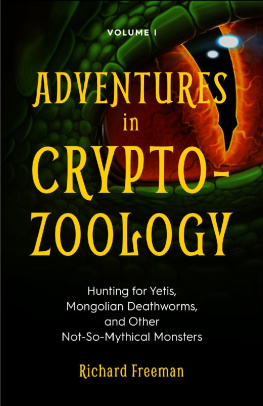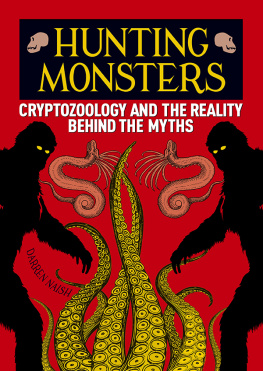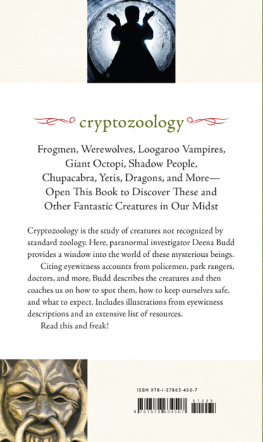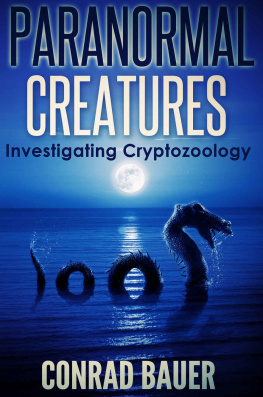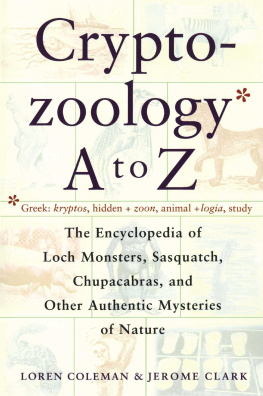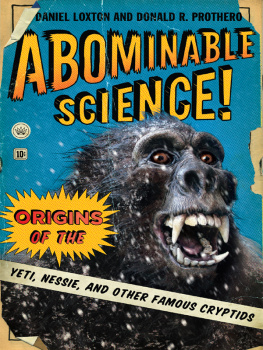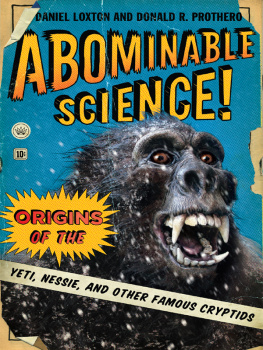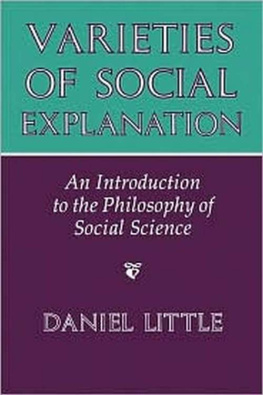
I really, really enjoyed reading this book. It provides a fascinating anthropological perspective on cryptozoological and related claims. The diversity of unknown animal claims considered is far wider than that seen in typical cryptozoology texts. Thus we have discussion of werebeings, non-corporeal snakes and mermaids, as well as more conventional cryptozoological fare like mystery cats.
Charles Paxton, University of St Andrews, UK
When anthropologists bring their ethnographic encounters into conversation with cryptozoology the result is wildly unsettling. How are unseen creatures known? Who decides what is real? Is knowledge always tentative and provisional? What multispecies ethics do cryptids call forth? Anthropology and Cryptozoology is a trip through beastly domains that challenge us to think widely, generously, indeed extravagantly.
Deborah Bird Rose, University of New South Wales, Australia
The scholars writing in Anthropology and Crytozoology treat the creatures of contemporary legend with a respect once reserved for ancient deities, by considering their ontological foundations and enthnozoological context. This gives new subtlety to the formerly marginal field of cryptozoology.
Boria Sax, author of The Mythical Zoo and Imaginary Animals
Anthropology and Cryptozoology
Cryptozoology is best understood as the study of animals which, in the eyes of Western science, are extinct, unclassified or unrecognised. In consequence, and in part because of its selective methods and lack of epistemological rigour, cryptozoology is often dismissed as a pseudo-science. However, there is a growing recognition that social science can benefit from engaging with it, for as social scientists are very well aware, scientific categorisation and explanation represents just one of a myriad of systems used by humans to enable them to classify and make sense of the world around them. In many cultural contexts, myth, folk classification and lived experience challenge the truth expounded by scientists. With a reflexive, anthropological approach and drawing on rich empirical and ethnographic studies from around the world, this volume engages with the theoretical and methodological issues raised by reported sightings of unrecognised animals. Bringing into sharp focus the anthropological value and challenges for methodology posed by beliefs about unclassified creatures, Anthropology and Cryptozoology: Exploring encounters with mysterious creatures will be of interest to anthropologists, sociologists and geographers working in the fields of research methods, anthrozoology, mythology and folklore, and humananimal interaction.
Samantha Hurn is Senior Lecturer in Anthropology and Director of the Exeter Anthrozoology and Symbiotic Ethics (EASE) working group, and the MA and Ph.D programmes in Anthrozoology at the University of Exeter, UK.
Multispecies Encounters
Series editors:
Samantha Hurn is Senior Lecturer in Anthropology and Director of the Exeter Anthrozoology and Symbiotic Ethics (EASE) working group, and Programme Director for theMAand Ph.D programmes in Anthrozoology at the University of Exeter, UK. She is the author of Human-Animal Farm: A Multi-Sited, Multi-Species Ethnography of Rural Social Networks in a GlobalisedWorld,Humans and Other Animals: Human-Animal Interactions in Cross-Cultural Perspective and editor of Anthropology and Cryptozoology: Exploring Encounters withMysterious Creatures.
Chris Wilbert is Senior Lecturer in Tourism & Geography at the Lord Ashcroft International Business School at Anglia Ruskin University, UK. He is the co-editor of Autonomy, Solidarity, Possibility: The Colin Ward Reader, and Technonatures: Environments, Technologies, Spaces and Places in the Twenty-first Century.
Multispecies Encounters provides an interdisciplinary forum for the discussion, development and dissemination of research focused on encounters between members of different species. Re-evaluating our human relationships with other-than-human beings through an interrogation of the myth of human exceptionalism which has structured (and limited) social thought for so long, the series presents work including multi-species ethnography, animal geographies and more-than-human approaches to research, in order not only better to understand the human condition, but also to situate us holistically, as human animals, within the global ecosystems we share with countless other living beings.
As such, the series expresses a commitment to the importance of giving balanced consideration to the experiences of all social actors involved in any given social interaction, with work advancing our theoretical knowledge and understanding of multispecies encounters and, where possible, exploring analytical frameworks which include ways or kinds of being other than the human.
Forthcoming titles in this series
Humans, Animals and Biopolitics: The more-than-human condition
Edited by Kristin Asdal, Tone Druglitr, Steve Hinchliffe
Animals in Place
Jacob Bull and Tora Holmberg
First published 2017
by Routledge
2 Park Square, Milton Park, Abingdon, Oxon OX14 4RN
and by Routledge
711 Third Avenue, New York, NY 10017
Routledge is an imprint of the Taylor & Francis Group, an informa business
2017 selection and editorial matter, Samantha Hurn; individual chapters, the contributors
The right of Samantha Hurn to be identified as the author of the editorial material, and of the authors for their individual chapters, has been asserted in accordance with sections 77 and 78 of the Copyright, Designs and Patents Act 1988.
All rights reserved. No part of this book may be reprinted or reproduced or utilised in any form or by any electronic, mechanical, or other means, now known or hereafter invented, including photocopying and recording, or in any information storage or retrieval system, without permission in writing from the publishers.
Trademark notice: Product or corporate names may be trademarks or registered trademarks, and are used only for identification and explanation without intent to infringe.
British Library Cataloguing in Publication Data
A catalogue record for this book is available from the British Library
Library of Congress Cataloging-in-Publication Data
Names: Hurn, Samantha, editor.
Title: Anthropology and cryptozoology / edited by Samantha Hurn.
Description: New York, NY : Routledge, 2017. | Series: Multispecies encounters
Identifiers: LCCN 2016020583 | ISBN 9781409466758 (hardback) | ISBN 9781315567297 (e-book)
Subjects: LCSH: Monsters--Psychological aspects. | Cryptozoology. | Anthropology.
Classification: LCC QL89 .A58 2017 | DDC 001.944--dc23
LC record available at https://lccn.loc.gov/2016020583
ISBN: 978-1-4094-6675-8 (hbk)
ISBN: 978-1-315-56729-7 (ebk)
Luci Attala (Senior Lecturer in Anthropology, University of Wales Trinity Saint David and Ph.D. candidate, University of Exeter). Lucis research is concerned with reimagining material relationships through the lens of New Materialities. More specifically, Luci has paid attention to edibility and the coalescing themes of ingestion, incorporation, and the processes of becoming that are co-created through ingestive relationships. Currently, Luci is exploring engagements with water in rural Kenya and considers waters part in organising human bodies and social behaviours in areas where water is scarce. Lucis work in Kenya was recognised in 2014 by the United Nations with the receipt of a Gold Star Award, and in 2015 she received the Green Gown Award as Sustainability Champion in Higher Education.


